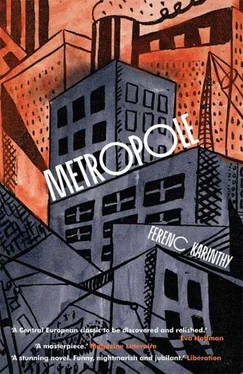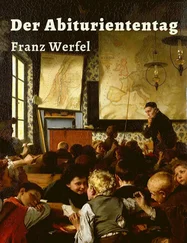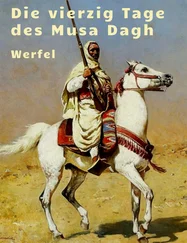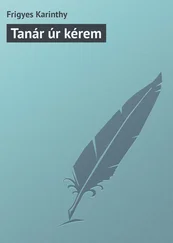As he already knew, work at the market continued right through the night, the ramp at the side entrance always being busy. But he did not come here to work now but to find somewhere to lay his head, any crude approximation to a bed where he could lie down and stay dry. In this respect he was just like the tramps he had seen earlier who, after work or a few drinks, always found a corner to curl up in. Pretty soon he found himself quite a comfortable nook at the back, near the end of the ramp where there was less bustle than elsewhere, a place full of empty crates piled into towers behind which a man might sleep without being noticed. There were a few old sacks on the concrete floor. The space must have been used as a refuge by others before him. Wet through as he was, he lay down and covered himself with his damp coat that smelled of the rain, made a crude pillow of sacks and, overcoming his inbred disgust of anything unhygienic, turned over and fell into a deep exhausted sleep.
He woke feeling hot, dizzy and shivering, not fully awake, in fact less than half awake. It was dark. Rays of lamplight filtered in from outside, as did the sounds of porters, the vibration of truck engines and the squeaking of the conveyor belt. Was this the same night or the one after? He had a fever, there was no doubt about it. He must have got chilled through in the rain, hanging about for hours like that in front of the hotel. Maybe it was flu. Cold shivers ran through him. He might even have contracted pneumonia.
He hadn’t been as low as this since leaving home. He felt utterly bereft, lost without a doctor or medicine: in his present condition he couldn’t even think of stumbling down to the clinic where the dentist had pulled his tooth. Not even a dog would take notice of him in this god-forsaken hole. No dogs were sniffing around him. Nor was he interested in anyone else. All he wanted to do was what mere animals did, to hide and be left alone with his troubles. He sank into himself and stayed there, his mind wandering at the rock bottom of his consciousness. The sickness numbed his body and spirit: he tossed and turned in his own heat, his own perspiration.
He was in a twilight condition with very few needs and, in so far as he had any will left at all, it was to reduce his needs still further since there was no way of requiting them. There was no food but then he had no desire to eat. A cup of tea might have been nice for his dry throat and to mask the bad taste in his mouth but what to buy it with? Best not to think about it; other matters were still less pleasant to think of though they were desperately urgent. A few days ago he had discovered a filthy latrine at the back of the market, though some people, it seemed, preferred to conduct their business by the wall. That was something he had to attend to. But first he had to raise his body and get over there, tasks that seemed to be beyond him now. Nevertheless, he was determined not to soil the spot he currently occupied. He could not imagine doing so, not while he had a spark of consciousness left at any rate.
It took considerable effort to get to his feet: for a full quarter of an hour he kept encouraging himself to get up but postponed the moment because the task seemed so difficult. After a number of failed attempts he got as far as sitting up but felt so dizzy that he immediately collapsed again and lost consciousness for a while, drowning in a dark red mist. Once he came to his senses he tried again, obstinate, cursing, He would not resign himself to failure. If he gave up the attempt, he insisted to himself, he might as well throw it all in.
So he kept trying, struggling and cursing his helplessness until finally he succeeded in standing on his feet. Surely with such determination he had to succeed. He took one step at a time, his hand on the wall, feeling his way like a blind man, fighting for each yard with brief intermittent losses of consciousness at which point he had to grasp something not to fall. He was forced to stop from time to time, resting on a bale or a crate for a few minutes before continuing. The short journey there and back took over an hour and at the end of it Budai was utterly exhausted. By the time he dropped on his mean improvised bed again he had no reserves left.
He tossed and turned in the confused hinterland between wake and sleep, the two blurred, sometimes all but inseparable. One time it seemed he was seeing rats. It was as if they were running over his legs though he felt no fear of them. Afterwards he could not tell whether it had really happened — as it well might in a place like this — or if he imagined it. He tended to dream a lot in any case and even more now that he was feverish. The dreams were usually about finding someone, someone with whom he could talk. It was a different person each time, a different occasion under different circumstances. The figure tended to appear in the metro, but the man in the green overcoat, his fellow Hungarian, turned up in other situations too. In one dream he was struggling with the fat doorman, in another he was sliding awkwardly between a group of skaters, occasionally falling over. He dreamt he was on an aeroplane, on a train, on a ship, even on a horse though he had never ridden one before. They were galloping down a damp sandy field, the soft soil behind them clearly showing the horse’s hoof prints.
Images of his more recent experiences got mixed up with memories of home. Even if they were looking for him they would not find him here. He had neither accommodation nor address now. He was a homeless vagabond like the others: who could possibly know where he was?… That was the one thing that could still bring tears to his eyes. It was what others would think of as his disappearance, the way he just vanished off the map. He wept quietly to himself on his bed of sacks behind the crates. All this might just be bearable if he had no ties, no family, no workplace, no friends, no dog. Or wife. He missed his wife most. She was the most powerful and deepest loss. They had lived together so long and so intimately, she was so much part of his own being, that the pain she must be feeling at home was his pain too. He would, if he could, have taken a scalpel to his own heart and cut her out of it.
No, he must not feel sorry for himself. He knew that even in his confused state, even as he was tossing and turning in his fever. Self-pity would not get him anywhere. There was no one else to pity him here. Self-pity would only be a burden, a handicap… His thoughts eventually did what they were bound to and ran to a natural conclusion, to the possibility that underlay every thought. There was hardly anything he needed to do in his current situation. He had simply to let go, to allow the thin thread of hope that had so far sustained him to slip from his hand and he would sink, or rather fall headlong, into a happy oblivion: that was, after all, for the time being anyway, the easiest course.
But he delayed it, put the thought away, refusing to let it preoccupy him. He could give up any time he chose. That was probably the chief reason he resisted: there was no urgency about giving up. The thought of escape, of flight, remained even if only as an idea, not a concrete plan. Despite his helplessness, despite his sick and muddled mental state, there continued to burn in him the small flame of defiance, an indescribable and indeed hopeless fury at his predicament. It was the fury that would not allow him to surrender and end up a loser. Simply grinding his teeth and cursing even at the worst hours of a crisis was evidence of struggle. Some particle of his consciousness would always resist the power of vacuous darkness. It was a kind of obduracy, rogue’s honour, an irrational, perhaps even ridiculous holding fast. It was a fellow-feeling with oneself when there is nobody else to turn to.
Читать дальше












